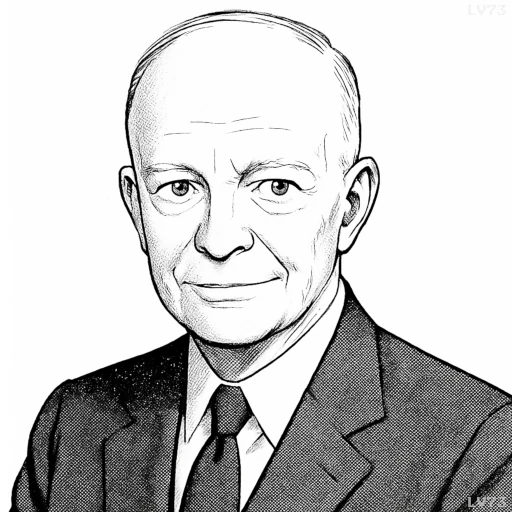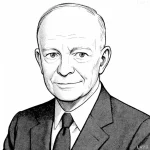“The most terrible job in warfare is to be a second lieutenant leading a platoon when you are on the battlefield.”

- October 14, 1890 – March 28, 1969
- American
- The 34th President of the United States, General, Military Leader
table of contents
Quote
“The most terrible job in warfare is to be a second lieutenant leading a platoon when you are on the battlefield.”
Explanation
This quote reflects Eisenhower’s deep understanding of the human cost of leadership in war, especially at its most immediate and vulnerable level. A second lieutenant is typically a young, newly commissioned officer, often just out of training, who is tasked with leading a small group of soldiers—a platoon—into combat. The role is fraught with danger, not only because of exposure to enemy fire but because of the immense burden of responsibility for the lives of subordinates.
Eisenhower, though a general removed from the trenches in his later career, never lost sight of what it meant to serve on the front lines. His leadership during World War II involved overseeing massive operations like D-Day, but he consistently recognized that true courage and sacrifice were demanded most from the junior officers and enlisted soldiers. A second lieutenant must make life-and-death decisions, often without complete information, under extreme pressure, and while still developing as a leader.
This quote still resonates today in discussions about military leadership, ethics, and the emotional toll of command. Modern militaries continue to train young officers rigorously, but the fundamental truth remains: leading in combat requires moral clarity, quick judgment, and deep empathy. It is a position that demands both strength and humility, and Eisenhower’s words serve as a reminder of the weight borne by those at the beginning of their leadership journey in war.
Would you like to share your impressions or related stories about this quote in the comments section?



